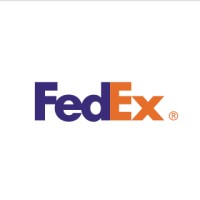
FedEx
FedEx connects people and possibilities through our worldwide portfolio of shipping, transportation, e-commerce and digital supply chain services. For decades, we’ve been innovating to deliver more for you. Strengthening supply chains with our global network. Simplifying logistics. Enhancing tracking and visibility. And using data from every journey to make your experience better. Our people are the foundation of our success, and FedEx has consistently ranked among the world’s most admired and trusted employers. We inspire our global workforce of more than 575,000 team members to remain absolutely, positively focused on safety, the highest ethical and professional standards, and the needs of their customers and communities. Day one: 186 deliveries. Today: About 14.5 million.






